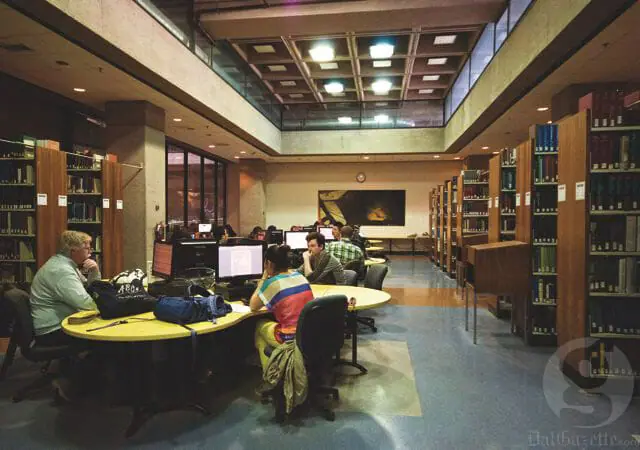Unless you’re a math or physics major, it’s likely that at some point in your life you’ve said to someone, “I’m not good at math.”
It’s such a common and accepted sentence that no one thinks to question it. Math is one of those subjects that everybody distances themselves from. We tend to think “oh, you have to be really smart to get math.”
My father studied computer science and math as a student. He was a math guru for me growing up, so when he told me that he “didn’t have what it took to go further with math” I was shocked.
Why is this idea so rooted in us, even those of us who pursue math? Why do we feel like math is completely inaccessible to us?
It’s because it is rooted – it’s a systemic problem.
We’re told from early on that math is hard. Kids who have an affinity for math tend to be praised beyond all other kids for how smart they are. But the way we learn math in school is limited by the traditional ways that it’s approached and taught.
Usually, the kids that ‘get math’ right away work well with traditional teaching styles. Because of this, the concepts come more easily to them. This easy acquisition of knowledge could be because of a ‘natural ability’ for math. What’s more likely, is that the information is being presented in a way that aligns with their learning skills.
Increasingly there’s more talk about learning skills. There are countless tests to take to find out if you’re a kinesthetic, auditory, visual or some other type of learner. The idea of learning your learning type is that teaching practices should do a better job of catering towards students’ specific learning needs; it’s slowly changing in school curricula. There are attempts to teach all subjects in a new way that will allow the most amount of students to learn effectively.
The problem is: despite efforts to change the way it’s being taught, this cultural stigma surrounding math is so strong that the idea that math exists for a select few still lives on.
The solution to this problem? It lies in a cultural shift. It involves changing how we perceive math.
We tend to think of math as something that’s all theorems: everything is theoretical and intangible. But it doesn’t have to be that way.
Math manifests itself in many different ways that we often don’t think of. For example, the math involved in daily life plays a significant role in our lives, and understanding it is essential. This kind of math involves practices like budgeting and taxes.
Another overlooked area of math is within the arts, specifically music. Math and music are so inextricably connected. Rhythm, tempo, pitch and harmony are all mathematical. But when was the last time you listened to music and thought about math?
Probably never.
Using music is an excellent way to begin to change the way we think about math because it’s accessible to almost everybody in some way. Most of us play an instrument, sing or listen to music. If we can start to think about math in terms of an area like music, the exclusivity of math may begin to disintegrate. This disintegration could be the beginning of the end to our universal belief that ‘we can’t do math.’
This connection between math and music could be pushed in education. This ties back to the idea that teaching techniques should coincide with learning methods. By changing the way we think about math, we may be able to make math more accessible to people who aren’t able to grasp mathematical concepts when taught traditionally.
Of course, this isn’t an ultimate solution. It’s the beginning of an idea that makes math more appealing and less exclusive. After all, math is all around us. Once we get past this block, maybe we’ll start to realize how much more there is to math and the potential that lies in that discovery.


Recent Comments